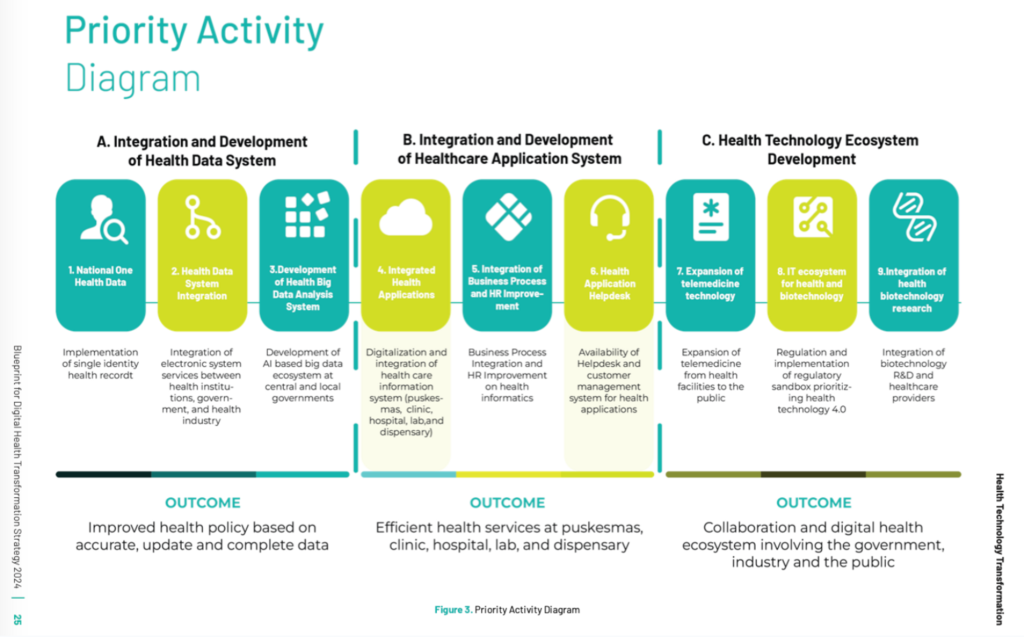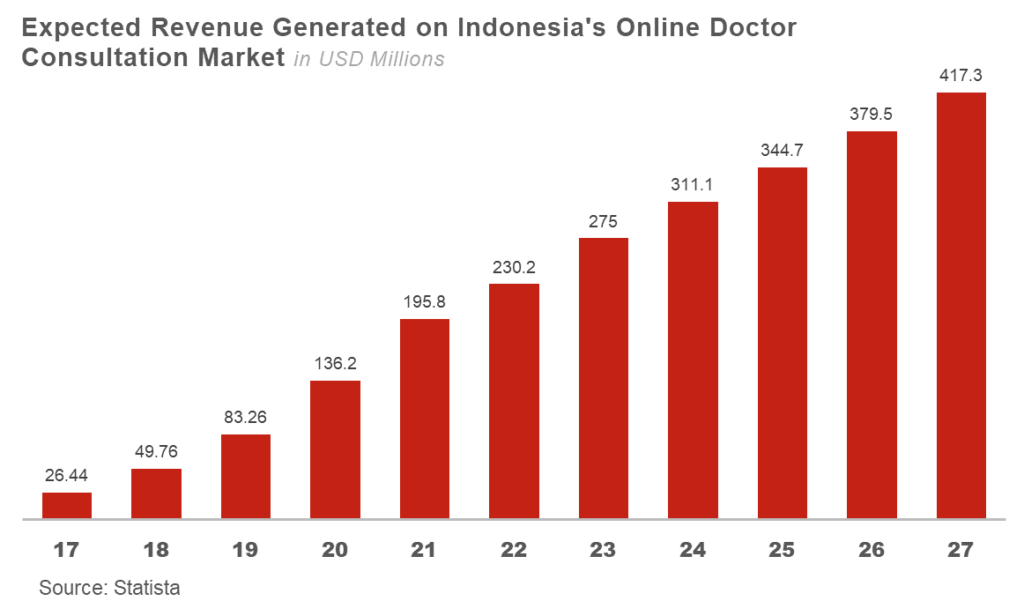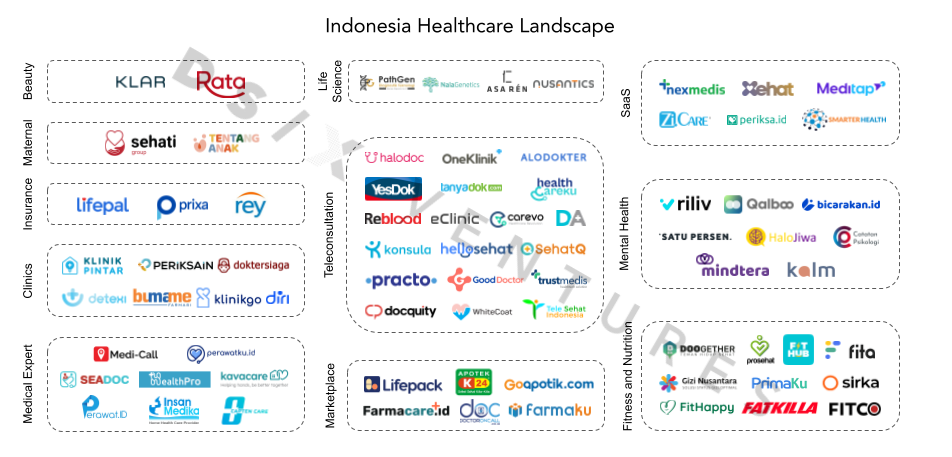Indonesia's Health Technology Landscape in 2023
Indonesian healthtech startups have received total funding of more than $231,7 million
Health is an important element in human life. However, Indonesia is one of the countries with inadequate health access and infrastructure (or where equity is still far from ideal). Agree or not, the pandemic over the last three years has opened the eyes of many parties to improve the health industry in the country.
In the summary of the report prepared DS/X Ventures, industrial value healthcare in Indonesia is projected to reach $68 billion in 2030, with the potential to have a significant impact by involving technology adoption. For more details, DailySocial.id summarizes several interesting points related to Indonesia's health landscape.
Indonesia's health transformation
Regardless of its potential, healthtech Indonesia is hampered by a number of obstacles that hinder the development of innovation in the health sector. According to the Chief Digital Transformation Office (DTO) of the Ministry of Health Setiaji, it is difficult to disrupt this industry because, for one thing, there is no data connectivity between health facilities.
There are 400 applications in the health sector, 70 community health center applications, and 50 hospital applications which have their own systems.
Another classic problem is the difficulty for people to access health services due to limited costs and location of health facilities. The Ministry of Health noted that the ratio of doctors is only around 0,38 per 1.000 population, while the ratio of beds in hospitals is 1,2 per 1.000 population in 2020. Meanwhile, the average Indonesia's per capita health costs in 2022 it will decrease 6,39% to IDR 32,1 thousand from the previous year of IDR 34,3 thousand.
In fact, innovation in the health sector can help business processes in the health sector and open wider access to the community. Adoption can also be encouraged through collaboration between traditional health facilities, such as clinics, hospitals and pharmacies, with digital solution providers to mutually strengthen knowledge, infrastructure and expertise in reaching a larger user base.
Some health innovations include:
- Health data and analytics The data collected can be analyzed to produce results insight of value to stakeholders in the healthcare industry. For example, the development of personalized medicine, disease prevention, and public health management.
- Accessibility and affordability Inadequate health infrastructure in developing countries, including Indonesia, makes it difficult for local people to receive treatment. Not to mention, the cost of treatment in Indonesia, especially in hospitals, is still quite high. The digitalization of the clinic chain developed by Klinik Pintar is one of the efforts to facilitate access to health for the grassroots segment.
- Patient data management The health industry is an industry that is difficult to disrupt because most of its business processes are still manual. Medical and administrative records are mostly written on paper. Nature The highly regulated health business also makes things difficult for platforms healthtech to develop innovations, for example digitizing medical records.
The good news is, last year the Ministry of Health issued regulations regarding implementation Electronic Medical Records (RME) at health facilities; stated in PMK No. 24 of 2022 concerning Medical Records which is a change and update to the previous regulation PMK No. 269 of 2008.
According to Setiaji, this new regulation will provide significant support for achieving data connectivity which has been the main issue for actors healthtech. Automatically, this regulation is considered to make things easier for perpetrators healthtech to develop innovation.

The government's efforts to digitally transform the health industry will also be an important step to have a significant impact on improving the health industry in Indonesia. There are three main agendas that are priorities for the Ministry of Health, namely integration and development of data systems, service applications, and ecosystems in the health technology sector (healthtech).
Healthtech in Indonesia
Service adoption healthtech Indonesia rose significantly during the Covid-19 pandemic. Telemedicine is a service healthtech the most widely used, allows the public to consult online with health workers via the application. Platforms Halodoc and HealthReplies.com is an example of the most popular telemedicine application.

However, developments healthtech Indonesia is not limited to adopting telemedicine services alone. Startup players develop innovations for disease prevention services, digitalization of clinics and hospitals, and mental health. Some of them are Fita, Klinik Pintar, and Riliv.

Over the past three years, healthtech Indonesia is also experiencing investment, which indicates that this sector has the potential to develop. Halodoc, so far, has raised up to $180 million in funding from Gojek, Astra, Telkomsel, Singtel, to Temasek. Meanwhile, Alodokter received investment support totaling $51,5 million, one of which was from SoftBank.
Data compiled by DS/X Ventures notes that over the last ten years, the sector healthtech in Indonesia has received total funding from investors of $231,7 million, mostly disbursed for early stage and series A startups.
Genomic exploration
Genomics has become one of the studies that has been highlighted in recent years in Indonesia. Even though it is still in the early stages, studies of the entire genes of an organism (genome) have been widely carried out because of its enormous potential for aspects of society's life in the future.
More Coverage:
Based on a report published by East Ventures in 2023, genomics has a number of benefits that can be applied to wider areas, including:
- Drug development The use of genomics can encourage research into medicines that are more effective and accurate for individuals.
- Predictive medicine By identifying genetic markers associated with disease risk, genomics-based diagnosis can enable predictive medicine so that individuals who are more susceptible to certain diseases can be detected early and enable timely prevention.
- Treatment methods Genomics is believed to be able to revolutionize treatment methods. For example, gene therapy to look for specific errors coded in our DNA. This allows for more efficient and effective care for the individual.
In general, genomic innovation can have a significant impact on the development of medicines, diagnosis, and treatment methods, which can improve patient care and produce more personalized care.
-
Disclosure: DS/X Ventures is part of the DailySocial.id group
Sign up for our
newsletter
 Premium
Premium
